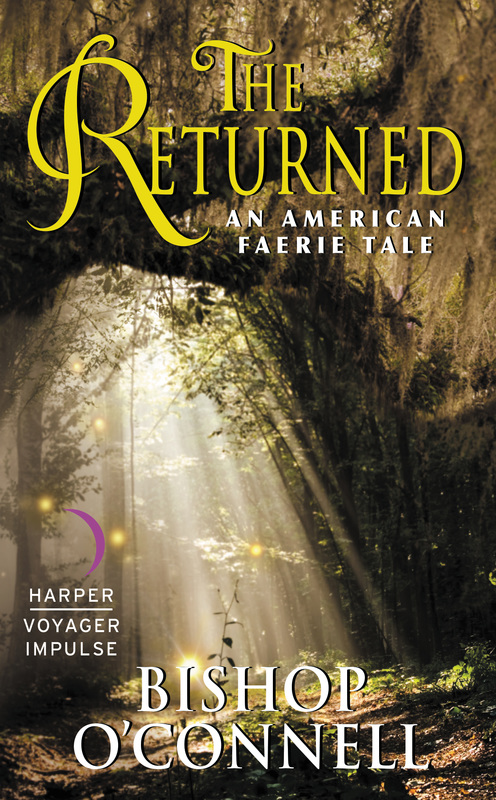Your Baby is Ugly, by Bishop O'Connell
We’re all familiar with the term; someone tells you something you love, and probably put a lot of work into, is wretched and worthy only of contempt, and thus, you’re a complete failure. Well, at least that’s what most of us hear, and hopefully for only the first few minutes. But what we should be hearing is that something we love, and probably put a lot of work into, is not the greatest creation of the human animal. That’s good news, stay with me here, because it means there’s room for improvement and a chance to hone our craft. If you’re like me, you might’ve had some similar experiences. I’ve been a storyteller for as long as I can remember. In first grade I started writing short stories, which the teacher would read to the class at story time. This provided my first taste of adulation. It also provided my first taste of how far some people will go to express their dissatisfaction with the quality of your work. Was the lost lunch money worth the praise? Well, I’m still writing, so there’s your answer. I’ve been writing, or making up stories in one form or another, since I was a kid. Learning of the long and proud history the Irish have with storytelling brought me a lot of satisfaction. I’m exceedingly proud of my heritage and storytelling is another way I bond with it. I did some stage acting for a while, which to me is another form of storytelling. In fact, being a performer was once a key part of storytelling. In time, I grew used to people telling me I was good at telling stories and should pursue it. What I didn’t know was that storytelling and writing are two completely distinct things.
When I entered the work force and began my adult life, my book in progress never seemed to get finished. Yes, I was “that guy” for a while, and I sincerely apologize. Most of my problem stemmed from constantly rewriting what I’d already written and making little or no progress forward. I still struggle with this a bit, but I digress. When the manuscript was finished, I felt convinced I had a good story, strong characters, and something worthy of being my introduction to the literary world. No, I didn’t expect to get a letter from the president of a major publishing house asking where I’d been and saying the world was so glad I’d finally arrived. But I thought I’d written something at least as good as what I was finding on bookshelves at the time. Many, many rejection letters later, some of which were less than gentle, I decided to try again. I wrote another book. This one practically wrote itself and I was thrilled with the outcome. I’d bought some books on dialogue, character development, and such, and thought I applied them well. Then I decided to take advantage of making a good living and hired a professional editor to look it over. I knew it wouldn’t be cheap, but I also know that reading through a full book and making notes isn’t something that can be done overnight and, as a professional in a different field, I respect the value of a professional’s time. I chose a respected editing firm, run by one of the authors of perhaps THE book on self-editing, Self-Editing for Fiction Writers. My beloved urban fantasy was eviscerated. Or that’s how it felt. While there was some genuine praise (not that I saw much of it), it was just enough to keep me from jumping off a bridge. I started to wonder why I ever thought I could be a writer. But I’ve always been someone who doesn’t like being beaten down. In fact, I sort of thrive on spite. When someone knocks me down, I’ll get back up just to tell them they can’t keep me down. I think it’s the Irish in me. I took time, looked over the comments, and decided to apply them. I changed some of my beloved characters, which was like amputating my own leg, with a plastic spork, then I removed large pieces of the story and rewrote others. Several rounds of editing later (it took several hits with the two-by-four) the book was something different. The story was still there, but now the writing didn’t get in the way. In fact, it actually improved the story. What a concept!
I learned about repetition; telling something and then saying it again. When you show people what happens, but worry the reader didn’t quite get it so you make sure, or just hammering the same point home again over and over. See what I did there? I will say when I saw, for the tenth time or so, my editor commenting “Repetition, don’t treat the readers like idiots.” I had a good laugh. He’s skilled at his craft, but apparently didn’t recognize, or appreciate, the poetry of that. Or perhaps he did and was laughing his ass off as he wrote it.
I also learned about having good subtext (and trusting your reader to pick it up), the concept of exposition (when to reveal something and just how much of it to reveal), and about all of the other common problems most first time writers fall into, and trust me, we do.
Mostly though, I learned you can’t write in a vacuum. You have to have someone else look at your work, and if you can afford to hire a professional, do it. When we write, most of us make all kinds of typos, miss entire words, or have sentences that start one way and finish another. We can catch some of these on our own, but we’ll read the sentence with the missing word and our brains will fill it in, so we’ll never see that it’s missing. You need someone who isn’t in the trenches, and isn’t emotionally vested in your story as it is, to look at from above and get the whole picture. A published author, I can’t overstate what a benefit it is to have a professional editor looking over my work.
But the hardest thing I learned was when I received comments, from friends or editors, was to read the comments, and then walk away. You need to get yourself away from the story and criticism. Get angry if you want. Swear, stomp, beat on a punching bag for a while. Whatever you need. Maybe even write a scathing reply then, and this is very important, DELETE IT. Once you’ve calmed down, go back and read the comments again. When you feel your emotions building up, rinse and repeat. When you can really listen to what you’re being told, consider why the person thinks that. Now, they could well be wrong. Even after four books, there are times I just plain disagree with the editor and kept things the way I want, or I go in a different direction entirely. If you have a friend doing this for you, be grateful, especially if he or she gives you more constructive feedback than “I liked it,” or “it’s good.” If you managed to find a good editor, and be sure to do your research, remember that this is someone who’s professional and knowledgeable; likely they have a degree, or plenty of experience, and likely both. Also remember, you’re paying for his or her advice! No point in paying if you’re going to ignore it all because the editor doesn’t suggest you’re the next J.K. Rowling or Stephen King. There should be examples in the comments of what you’re doing right. If there aren’t, don’t assume everything you’re doing is wrong, ask. But keep in mind an editor isn’t paid to blow sunshine up your backside. His or her job is to help you make your book/short story/novella/screenplay/poem/manifesto the best it can possibly be. An important lesson I’ve learned over the years is that different editors have different opinions, so don’t be surprised if you work with two different editors and they contradict each other. The literary world is capricious at best. It’s not just enough to have a good story that’ll sell. You have to get said story in front of someone who recognizes it as such, and do it when that person is open to seeing it.
When I first wrote this piece, I hadn’t yet landed my publishing deal from Harper. It’s now two years and four books later, and this piece still holds true. Over the course of my writing career, both and pre and post publication, I’ve learned some hard lessons. Some of those were costly; sometimes in ego, sometimes in cash, and sometimes both. Before getting my publishing deal I received more rejection notices that I care to think about, both with and without reviewing the manuscript. But I kept writing because I had to, for me. This is still the case. The Returned marks the end of my current contract with Harper and I’m going through the familiar panic of wondering if I’ll get another. But I keep writing, and I’ll keep writing no matter what happens. Just as before I knew that one day I’d get published and see my book on shelves—this was a great day—I know now that I’ll get another publishing deal, and one day I’ll make a living on my writing. I know this not just because I’m published now, but because of what I knew before that happened: No one has ever succeeded who gave up. The people who succeeded say you can too, the people who gave up say you can’t. As one of those who made it, let me add my voice to the chorus. You can do it too.
Who are you going to listen to? Me, I was, and still am, too spiteful and stubborn to give up.
Little do they know, New Orleans is at the center of a territory their Rogue Court guardians hold no sway in, so the Court sends in Wraith, a teenage spell slinger, to watch over them. It’s not long before they discover an otherworldly force is overtaking the city, raising the dead, and they’re drawn into a web of dark magic. At the same time, a secret government agency tasked with protecting the mortal world against the supernatural begins their own investigation of the case. But the culprit may not be the villain everyone expects. Can Wraith, Caitlin, and Edward stop whoever is bringing the vengeful dead back to life before another massacre, and before an innocent is punished for crimes beyond her control?
Blog – https://aquietpint.com/
Facebook - https://www.facebook.com/AuthorBishopOConnell
Twitter - https://twitter.com/BishopMOConnell
Instagram - https://www.instagram.com/bishopmoconnell/
Amazon Author Page - http://www.amazon.com/-/e/B00L74LE4Y
The Returned ebook:
HarperCollins
Amazon
Barnes & Noble



 RSS Feed
RSS Feed